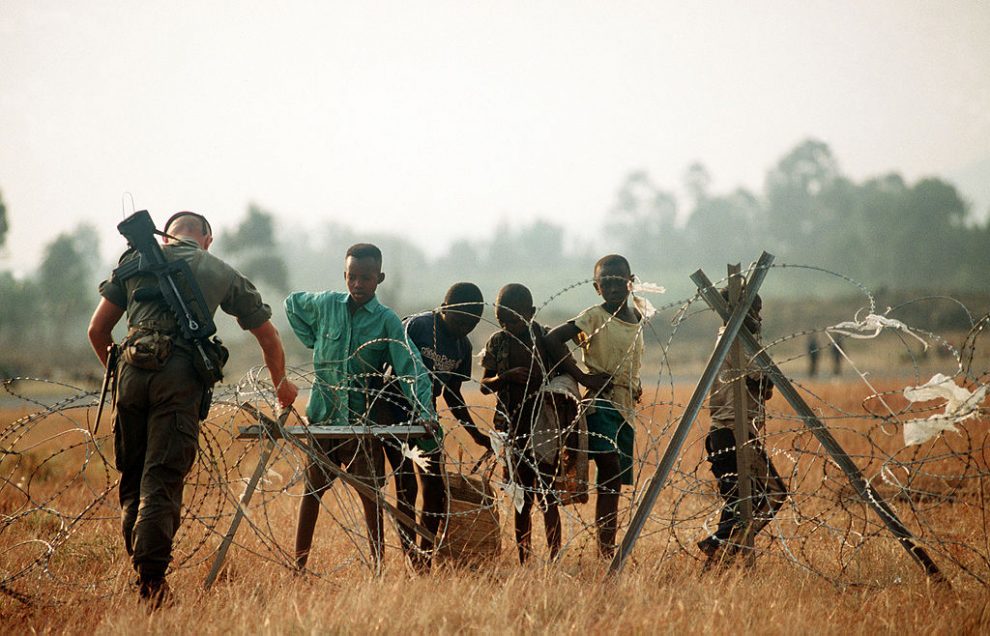
Following the recent apology of the Catholic Church for its role in the genocide in Rwanda,[1] France has also come into the spotlight after news about Rwandan authorities’ decision to launch a criminal inquiry of several senior French officials for their alleged role in the 1994 genocide. This move is considered to deepen already strained relations of Rwanda with France.
On 30 November, it was announced by Prosecutor-General of Rwanda Richard Muhumuza that Rwanda has launched an inquiry into the possible role of 20 French military and other officials in the 1994 genocide. They are required by the prosecution authority to explain or provide clarity on allegations against them. It was also stated that depending on the outcome of their investigations, other French government officials might be required to come forth besides the 20 French officials, and that the relevant French Government agencies and authorities was also expected to perform reciprocal judicial cooperation throughout this inquiry.[2] One month ago, Rwanda’s Commission for the Fight against the Genocide (CNLG) released a list of 22 former and serving French army officials that Kigali claims have played a role in the 1994 genocide against Tutsi[3] (similarly, in 2008, Rwanda had named 33 senior French military and political figures that it said should be prosecuted).[4]
The announcement on the inquiry of 20 French officials came after (and perhaps in response to) France’s reopening of investigations in early October into the 1994 assassination of the Rwandan president that triggered the Rwandan genocide.[5]
As it is known, on 6 April 1994, an airplane carrying Rwandan president Juvénal Habyarimana and Burundian president Cyprien Ntaryamira (both Hutus) was shot down by a rocket attack. Since then there have been many disputes with regard to the responsibility of the attack. The Rwandan government states that the attack was carried out by Hutu extremists who tried prevent the then Rwandan president Habyarimana from signing a peace agreement with the Rwandan Patriotic Front (RPF), the Tutsi rebel group that was led by current President Kagame and fought with the Hutu dominated government of President Habyarimana and government-aligned Hutu militias during the Rwandan Civil War between 1990 and 1994. Yet, there is also an opposing view that was put forth by Hutu militias that claims that the assassination was carried out by the RPF on the orders of Kagame.
The latest French investigation has been reopened due to a deposition from former close aide of Rwandan President Paul Kagame accussing him of being linked to the shooting down of the plane. The original probe by France was initiated in 1998 following a complaint from the families of the French crew members who died when the plane was shot down. The inquiry reached several dead ends due to problems evaluating evidence and summoning suspects. In 2006, a French judge issued arrest warrants for nine high-ranking Rwandan officials close to Kagame on suspicion of plotting Habyarimana’s assassination (Kagame was not indicted because of his immunity as a head of state).[6] This led Rwanda to break diplomatic relations, which was later restored in 2009 (the arrest warrants were dropped by France in 2010).[7]
On October 10, Rwandan President Paul Kagame criticized France after French investigators reopened an investigation into the 1994 assassination of the Rwandan president. It was reported that Kagame said that the judicial system of Rwanda was not subordinate to France or France's interests and that "it should be France in the dock being tried, not anybody in Rwanda and not Rwandans."[8]
As suggested by President Kagame, there is a common belief among many Rwandans that France played a role and participated in the Rwandan Genocide of 1994. France is known for supporting the Hutu-led government of Habyarimana against the Tutsi-dominated RPF during the process leading to the massacres. France has been accused of arming and training the Hutu perpetrators responsible for the slaughter. French troops are also accused failing to protect Tutsis, not intervening to the massacres and leaving them at the mercy of the Hutu extremists during Operation Turquoise, a French-led military operation in Rwanda in 1994 under the mandate of the United Nations. Furthermore, the operation has been claimed to be a backdoor allowing thousands of Hutu genocide suspects to escape.[9] France has been also later criticized for harboring genocide suspects and failing to extradite them as well as being slow in arresting and prosecuting suspected genocide perpetrators living in France.[10]
France has long rejected these accusations. In 1998, a French parliamentary committee of inquiry declared that "France was in no way implicated in the genocide against the Tutsis", but admitted that French authorities made "serious errors of judgement."[11] In 2010, the then French President Nicolas Sarkozy had admitted that France made “mistakes” during the genocide in 1994. He had said that France had suffered from "a sort of blindness" preventing the country seeing “the genocidal aspect” of the former Hutu government, and that “international community, including France, had to reflect on the mistakes that stopped it from preventing and halting this abominable crime.” Yet, Sarkozy had refused to offer a “full apology”.[12]
Ultimately, in this debate between France and Rwanda, many Rwandans believe that France had at least some sort of an role in the 1994 genocide, and that it tries to divert attentions away from the killings (for instance, by focusing on the plane rather than the massacres itself). It appears that the tense relations between France and Rwanda will not calm down in the near future. There is even a risk that the recent row might lead to the breaking of diplomatic relations once more. A French court’s recent confirmation of the 25-year prison sentence of a former Rwandan intelligence officer for complicity in the massacres[13] - a move that could be considered as a positive development with the context of Rwandan-French relations- took place under the shadow of the above-mentioned recent tension between the two countries. Yet, it appears that unless both sides sit down, lay down their arguments and try to find a solution, relations between the two parties would remain to be poisoned.
*Photo Source: Wikimedia
[1] Ali Murat Taşkent, “Catholic Church In Rwanda Apologizes For Role In Genocide”, AVİM, 5 December 2016, http://avim.org.tr/en/Yorum/CATHOLIC-CHURCH-IN-RWANDA-APOLOGIZES-FOR-ROLE-IN-GENOCIDE
[2] “French officials face criminal charges over 1994 Genocide”, The New Times, 30 November 2016, http://www.newtimes.co.rw/section/article/2016-11-30/205841/
[3] “Rwanda links 22 French officials to 1994 genocide”, Anadolu Agency, 31 October 2016, http://aa.com.tr/en/africa/rwanda-links-22-french-officials-to-1994-genocide/675811
[4] “France accused in Rwanda genocide”, BBC, 5 August 2008, http://news.bbc.co.uk/2/hi/africa/7542418.stm
[5] “France reopens probe into 1994 assassination of Rwandan president”, Daily Mail, 7 October 2016, http://www.dailymail.co.uk/wires/afp/article-3827761/France-reopens-probe-1994-assassination-Rwandan-president.html
[6] Probe revisits assassination that triggered Rwandan genocide”, The Globe and Mail, 11 October 2016, http://www.theglobeandmail.com/news/world/probe-revisits-mystery-of-assassination-that-triggered-rwandan-genocide/article32316139/
[7] “French judges lift arrest warrants against Rwandan military officials”, The East African, 20 December 2010, http://www.theeastafrican.co.ke/news/2558-1074664-xvvh5r/index.html
[8] “Rwanda angered by French reopening of killing investigation”, Reuters, 10 October 2016, http://www.reuters.com/article/us-rwanda-france-idUSKCN12A1WC
[9]“ France claims innocence in Rwanda genocide, again”, France 24, 8 February 2016, http://www.france24.com/en/20160208-france-rwanda-genocide-claims-general-hearing-french-troops-role-hutus-tutsis-kagame
[10] “21 years later, French role in 1994 Rwanda genocide still faces unanswered questions”, Mail & Guardian Africa, 9 April 2015, http://mgafrica.com/article/2015-04-09-french-role-in-rwandan-genocide-unanswered-questions
[11] “Twenty years after genocide France and Rwanda give different versions of history”, RFI, 10 April 2014, http://en.rfi.fr/africa/20140410-twenty-years-after-genocide-france-and-rwanda-give-different-versions-history
[12] “Nicolas Sarkozy admits Rwanda genocide 'mistakes'”, BBC, 25 February 2010, http://news.bbc.co.uk/2/hi/africa/8535803.stm
[13] “French Court Confirms Genocide Conviction of Former Rwandan Intelligence Chief”, Human Rights Watch, 5 December 2016, https://www.hrw.org/news/2016/12/05/french-court-confirms-genocide-conviction-former-rwandan-intelligence-chie
© 2009-2025 Center for Eurasian Studies (AVİM) All Rights Reserved
No comments yet.
-
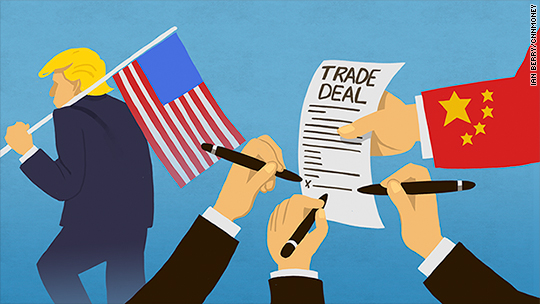 CHINA’S RISING PROFILE IN THE PACIFIC
CHINA’S RISING PROFILE IN THE PACIFIC
Ali Murat TAŞKENT 26.01.2017 -
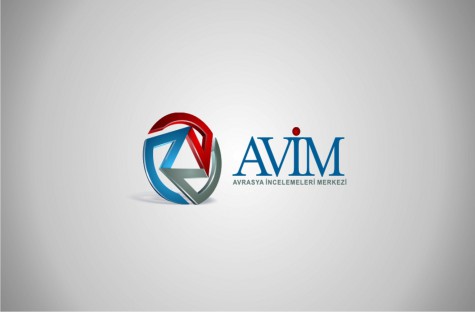 BOOK REVIEW-SASUN: THE HISTORY OF AN 1890S ARMENIAN REVOLT
BOOK REVIEW-SASUN: THE HISTORY OF AN 1890S ARMENIAN REVOLT
Ali Murat TAŞKENT 12.04.2015 -
 GREECE, GREEK CYPRIOT ADMINISTRATION AND ARMENIA - COMMONALITIES
GREECE, GREEK CYPRIOT ADMINISTRATION AND ARMENIA - COMMONALITIES
Ali Murat TAŞKENT 01.08.2017 -
 VICTIMIZED TURKS IN SWITZERLAND
VICTIMIZED TURKS IN SWITZERLAND
Ali Murat TAŞKENT 16.11.2015 -
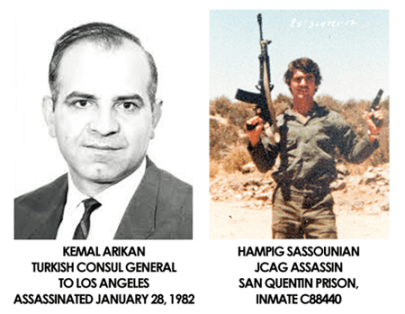 WILL THE U.S. STATE OF CALIFORNIA GIVE GREEN LIGHT TO TERRORISM?
WILL THE U.S. STATE OF CALIFORNIA GIVE GREEN LIGHT TO TERRORISM?
Ali Murat TAŞKENT 09.01.2017
-
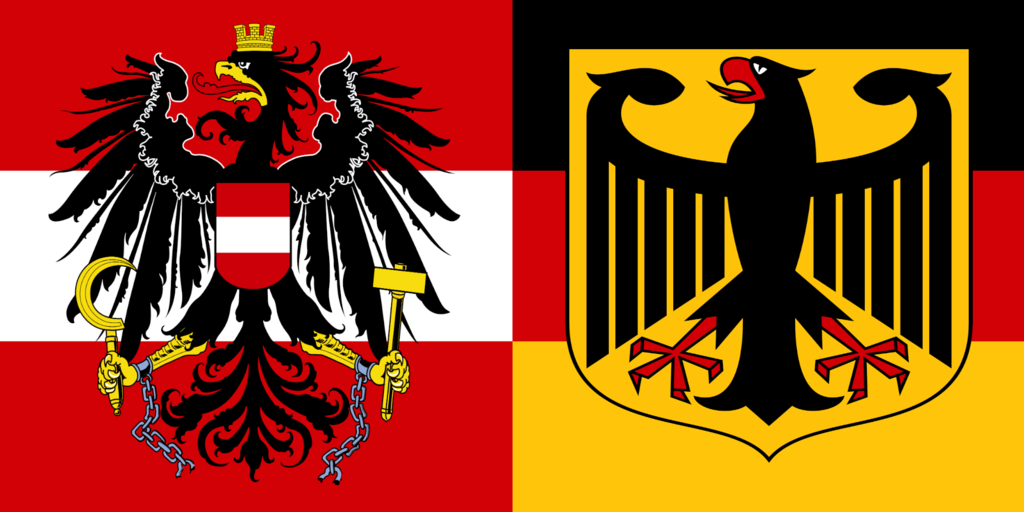 GERMANY ENDS INTELLIGENCE SHARING WITH AUSTRIA
GERMANY ENDS INTELLIGENCE SHARING WITH AUSTRIA
Hazel ÇAĞAN ELBİR 09.04.2018 -
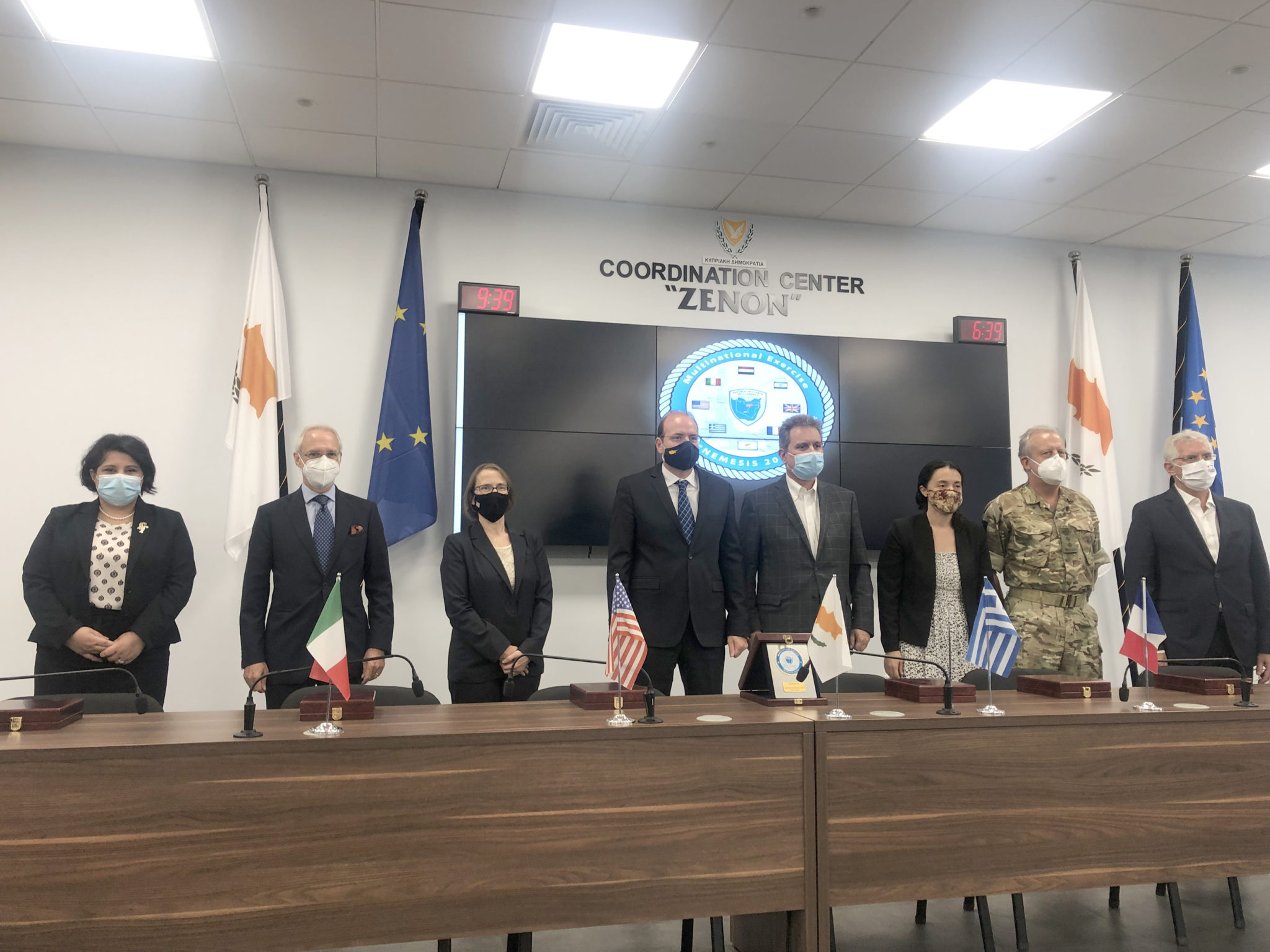 NAVAL EXERCISE "OPERATION NEMESIS" IN THE EASTERN MEDITERRENIAN AND ITS CONNOTATIONS
NAVAL EXERCISE "OPERATION NEMESIS" IN THE EASTERN MEDITERRENIAN AND ITS CONNOTATIONS
AVİM 15.10.2020 -
COMMEMORATION OF OUR MARTYR DIPLOMATS
Oya EREN ÖZER 15.02.2012 -
 AN EXEMPLARY FIGURE IN DIPLOMACY AND HISTORY: IN MEMORY OF RETIRED AMBASSADOR BİLAL ŞİMŞİR
AN EXEMPLARY FIGURE IN DIPLOMACY AND HISTORY: IN MEMORY OF RETIRED AMBASSADOR BİLAL ŞİMŞİR
Teoman Ertuğrul TULUN 10.05.2024 -
THE ARMENIAN QUESTION AFTER THE HOLIDAYS IV
Ömer Engin LÜTEM 07.09.2011
-
25.01.2016
THE ARMENIAN QUESTION - BASIC KNOWLEDGE AND DOCUMENTATION -
12.06.2024
THE TRUTH WILL OUT -
27.03.2023
RADİKAL ERMENİ UNSURLARCA GERÇEKLEŞTİRİLEN MEZALİMLER VE VANDALİZM -
17.03.2023
PATRIOTISM PERVERTED -
23.02.2023
MEN ARE LIKE THAT -
03.02.2023
BAKÜ-TİFLİS-CEYHAN BORU HATTININ YAŞANAN TARİHİ -
16.12.2022
INTERNATIONAL SCHOLARS ON THE EVENTS OF 1915 -
07.12.2022
FAKE PHOTOS AND THE ARMENIAN PROPAGANDA -
07.12.2022
ERMENİ PROPAGANDASI VE SAHTE RESİMLER -
01.01.2022
A Letter From Japan - Strategically Mum: The Silence of the Armenians -
01.01.2022
Japonya'dan Bir Mektup - Stratejik Suskunluk: Ermenilerin Sessizliği -
03.06.2020
Anastas Mikoyan: Confessions of an Armenian Bolshevik -
08.04.2020
Sovyet Sonrası Ukrayna’da Devlet, Toplum ve Siyaset - Değişen Dinamikler, Dönüşen Kimlikler -
12.06.2018
Ermeni Sorunuyla İlgili İngiliz Belgeleri (1912-1923) - British Documents on Armenian Question (1912-1923) -
02.12.2016
Turkish-Russian Academics: A Historical Study on the Caucasus -
01.07.2016
Gürcistan'daki Müslüman Topluluklar: Azınlık Hakları, Kimlik, Siyaset -
10.03.2016
Armenian Diaspora: Diaspora, State and the Imagination of the Republic of Armenia -
24.01.2016
ERMENİ SORUNU - TEMEL BİLGİ VE BELGELER (2. BASKI)
-
AVİM Conference Hall 24.01.2023
CONFERENCE TITLED “HUNGARY’S PERSPECTIVES ON THE TURKIC WORLD"









